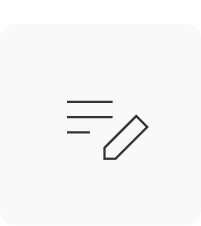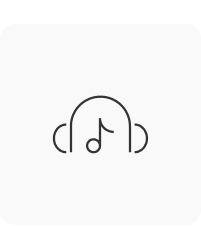"Take Your First Step into Korean Learning!"
Main topics of the Level 1 course:
- Basic greetings
- How to count numbers in Korean
- Basic grammar for forming your first Korean sentences
- Present and past tense
- How to say "who", "why", and "how" in Korean
Table of Contents
![]() Average lesson length: 13 minutes
Average lesson length: 13 minutes
Lesson 1. Hello. Thank you. / 안녕하세요. 감사합니다.
Lesson 2. Yes. No. What? / 네. 아니요. 네?
Lesson 3. Good-bye. See you. / 안녕히 가세요. 안녕히 계세요. 안녕.
Lesson 4. I’m sorry. Excuse me. / 죄송합니다. 저기요.
Lesson 5. It’s me. What is it? / 저예요. 뭐예요?
Lesson 6. What is this? This is … / 이거 뭐예요? 이거…
Lesson 7. This, That, It / 이, 그, 저
Lesson 8. It’s NOT me. / 아니에요.
Lesson 9. Particles for Topic and Subject / 은, 는, 이, 가
Lesson 10. have, don’t have, there is, there isn’t / 있어요, 없어요
Lesson 11. Please give me. / 주세요.
Lesson 12. It’s delicious. Thank you for the food. / 맛있어요. 잘 먹겠습니다. 잘 먹었습니다.
Lesson 13. I want to … / -고 싶어요
Lesson 14. What do you want to do? / 뭐 하고 싶어요?
Lesson 15. Sino-Korean Numbers / 일, 이, 삼, 사
Lesson 16. Basic Present Tense / -아요, -어요, -여요
Lesson 17. Past Tense / -았/었/였어요 (했어요)
Lesson 18. Particles for Location / 에, 에서
Lesson 19. When / 언제
Lesson 20. Native Korean numbers / 하나, 둘, 셋, 넷
Lesson 21. Negative Sentences / 안, -지 않다
Lesson 22. 하다 verbs
Lesson 23. Who? / 누구?
Lesson 24. Why? How? / 왜? 어떻게?
Lesson 25. From A To B, From C Until D / -에서/부터 -까지
Review What You’ve Learned in Level 1
Why you'll LOVE our Essential Korean Curriculum
All Levels Covered Short and Digestible Lessons Fun Story-based Reviews Review Quizzes and Interactive Audio Lessons
By simply following our curriculum that covers 10 levels, you can take your Korean skills from absolute beginner all the way up to advanced.
Each lesson is bite-sized and easy to understand, as it focuses on one grammar point at a time and provides many example sentences.
You can review the entire course through a fun story! The final lesson of each course features a fun story that allows you to review all the grammar and vocabulary introduced in the course.
You can test your new knowledge through review quizzes and interactive audio lessons, where our teachers ask you questions, and you can respond and check where you need to improve.
Who teaches this course?


What you can find in this course:

Lesson notes

MP3 file

PDF file

Sample dialogues

Sample dialogues

Review lesson
[Updated] Learn to Read and Write in Korean (Hangeul)![]()
#Hangeul #KoreanLetters #AbsoluteBeginners
How Korean Sentences Work![]()
#KoreanSentences #Grammar #Beginner
30 Essential Korean Adjectives For Beginners![]()
#KoreanAdjectives #Vocabulary #Beginner
20 Essential Korean Phrases For Beginners![]()
#KoreanPhrases #Speaking #Beginner
Level 1 Textbook ![]()
Level 1 Workbook ![]()
Level 1 Textbook & Workbook Package ![]()
More courses & books you might also like
[Updated] Learn to Read and Write in Korean (Hangeul)![]()
#Hangeul #KoreanLetters #AbsoluteBeginners
How Korean Sentences Work![]()
#KoreanSentences #Grammar #Beginner
30 Essential Korean Adjectives For Beginners![]()
#KoreanAdjectives #Vocabulary #Beginner
20 Essential Korean Phrases For Beginners![]()
#KoreanPhrases #Speaking #Beginner
Level 1 Textbook ![]()
Level 1 Workbook ![]()
Level 1 Textbook & Workbook Package ![]()






안녕하세요!
I am still confuse. How is the ‘이었어요 ‘ different from ‘있어요 ‘?
They are 2 different verbs. 이다 and 있다.
We will give you two sentences to show the difference.
Tom is at school. 탐이 학교에 있어요.
Tom used to be our teacher. 탐은 우리 선생님 이었어요. (Past)
If you have more questions, please let us know:)
Thank you so much it is really helpful, I have a question about 는 걸
I watched your 는 것 lesson but there is something I don’t understand when 것 is followed by object particle it becomes 걸 right?
But I have seen many koreans use 는 걸 when it seems like there is no object for example
예쁜 걸
선물인 걸
걷잡을 수가 없는 걸
Can you tell me why 걸 with the object particle is used at the sentences above?
Thank you
-는 것 is the most general way of changing an action verb into a noun. -는 걸 is not a noun form, and more used as spoken words.
Alice ate my cookies which I made. = 앨리스가 내가 만든 쿠키를 먹었다. If you point at the cookies, you can say like this; 내가 만든 걸 앨리스가 먹었다. You can also say 내가 만든 것을 앨리스가 먹었다. Hope this helps:)
the best way to learn korean is with ttmik /i had finished level 1 and im in level 2 now lesson 17 im happy /thank you so much
Thank you for studying with us 🙂
just finished level1 . thank u ttmik
Thank you for studying with us 🙂
Hey everyone!, Just starting level 2! I would love a study partner, my ig is Briannaimaniblog. DM me if you want to study ☺️
In lesson 6, there is a sentence –
일요일이었어요. And next sentence,
어제까지는 친구 였어요.
In this both sentences, does 이었어요 and 였어요 mean same? Which Verb’s conjugation is this?
이었어요 and 였어요 are the same meaning. If the word ends with consonant, you should use 이었어요. If the word doesn’t end with consonant, 였어요 will be used. Hope this helps:)
Vă mulțumesc așa de mult că ne puteți învăța Coreeană
Please use Korean or English to ask us any questions.
Thank you very much for teaching us Korean (he have said^^)
Thank you for talk to me in Korean , it helps me a lot to learn korean without being stressful 💙 I am finishing level 2 .
Thank you for studying with us:)
안녕하새요! For the lesson 6: 절려 작을 싶어요. 그런데 내일 시험이에요. I didn’t really get all of the first phrase. But the last one means: But I have a test tomorrow.
You were very close to the answer. 졸려서 자고 싶어요. 그런데 내일이 시험이예요. You should listen to it again to check whether you can catch the expressions. 🙂
레벨 2 다 했어요/끝났어요. ^^;
선생님 들이 너무 고마워요! 자는 한국어 를 더 공부할 거예요. 선생님들랑 같이 공부한는 거 정말 재미있어요.
Thank you for studying with us! If you have any questions, please contact us 🙂
안녕하세요!
Lesson 4 – Quiz answer:
저는 컴퓨터 하고 핸드폰 사고 싶어요.
I want to buy computer and cell phone .
For lesson 4, there is no quiz answer like the one you’ve asked, so we’re confused about your comment. Could you please let us know more details of your question? Thank you, in advance.
At the end of the level2- lesson 4 (and , with) there is a sentence spoken by native Korean person and we were asked to translate it as a homework quiz.
Sorry for the confusion:) 저는 컴퓨터하고 핸드폰을 사고 싶어요. You just missed -을. Awesome!
Hey I got a question I originally wrote in the disqus comment section and it stil confuses me lol
So 만나다 makes 에서 necessary for 어디, because meeting is an action, right?
Would the same apply to 가다, since going is an action too? Meaning: 어디에서 갈 거예요?
Because I remember that you say 집에 가요. for “I’m going home.”, and there’s only the 에 marker used.
Thanks!
Let’s meet at Seoul. = 서울에서 만나요. -에서 is used as “at.” For 가다, I’m going home=집에 갈 거예요, 집에 가요. You should think about where you are at first. For example, if you are the one who is going to somewhere, then you should say -에 갈 거예요.
I’m going to the shopping mall.= 나는 쇼핑몰에 갈 거예요. Hope this helps!
Late reply, but thank you! It does help a lot!
I didn’t even notice that. Thanks for pointing to little details of the lessons. From now on I’ll pay more attention.
감사합니다!!
OH! I just had a revelation! Its because 에서 refers to action taking place SOMEWHERE, not just generally. Going home only needs 에 because there’s no action taking place at home. But in lesson 1, it is about WHERE to meet, so it becomes a place where an action takes place! And “going” isn’t something that is an action happening at a place, like ever. Whew! Is that right?
Hi there, question about 다 in lesson 29 and the example sentence of 전화 다 했어요?
I’m trying to make sense of the translation “did everyone make a phone call?”.
If 다 is not used as a noun in Korean, is the “everyone” implied here?
If so, what would 다 convey as it pertains to the above translation? Did everyone make ALL the phone calls?
Do you see my confusion? 🙂
감사힙니다 in advance!
전화 다 했어요? -> It’s one Korean sentence, but 다 can be translated in 3 different meanings; finish, all and everyone.
1. Did you finish talking on the phone? -> Finish!
2. Did you make all the phone calls? -> All!
3. Did everyone make a phone call? -> Everyone!
Many thanks!
안녕하세요! I’m a little bit confused regarding lesson 2-19 : Changing verbs into nouns using the 는 것 form. If it also means the action of doing something, how is it different from the present progressive ? And I’m also not sure when and which particule to use after 는 것, when should I use 은/는 vs 을/를? 감사힙니다 🙂
We will give you some examples. To eat=먹다 -> 먹는 것 (Noun) ->먹고 있다 (Present progressive)
To run=달리다 -> 달리는 것(Noun) -> 달리고 있다(Present progressive)
-는 것 +을 is correct. -> 나는 수영하는 것을 좋아한다.=I like swimming.
-을 – used after a noun ending in a consonant / -를 – used after a noun ending in a vowel
You should memorize these rules first!
For 은/는, please check this link: https://www.youtube.com/watch?v=fCxLNRLntc0
Hope this helps 🙂
네, 감사합니다 🙂
While writing in 한글 can we write 했어요 as 해써요 ? I mean they basically sound same, right ?
했어요 is correct! You shouldn’t use 해써요 because it is incorrect. 한국어 공부했어요.(O)
Hi! Just started level 2. A question regarding lesson 1. :
How to conjugate 오다 in future tense ? Will you please explain with an example ?
오다 in future tense is 올 거예요. 비가 올 거예요.= It’s going to rain 제인이가 우리 학교에 올 거예요. Jane will come to our school. Hope this helps 🙂
감사합니다 for 도움 😊
Hi,
Looking for helpful examples to help me learn.
If 슬프다 means to be sad, would it be used in something like “It’s a sad situation” or “The movie was sad” (?)
Conversely, if using 슬퍼하다, would that then be used in something like “I’m feeling so sad” (?)
Thank you in advance for any help!
It’s a sad situation= 슬픈 상황이다. The movie is sad.=그 영화가 슬프다. You can use the word like these examples. For 슬퍼하다, it should be used with people’s feeling or something which has feelings. I’ve been sad because I lost my dog.=나는 강아지를 잃어버려서 슬퍼하고 있다.
Thank you for the explanation.
Hi there! I had a little question! How can we make a difference between to buy (사다) and to live (살다) in the future tense, since they both give 살 거예요?? Is there a way to know which one we’re talking about?
Hello! Well, I’m probably not the person you’re expecting an answer from, but it’s about the context. The context of the conversation will tell you if it means to buy or to live.
Ah! That makes sense, thank you very much!
May I ask what’s the difference of usage between “못” and “안”? Thanks 선생님 ~
We will give you a simple way to recognize the difference between 못 and 안. 못 is out of your control. Let’s say you want to say you don’t know how to swim. In this case, you should say 저는 수영을 못해요. However, you know how to swim, but if you do not want to do it, you should say 저는 수영을 안 할래요. As you can see, 안 is used when it’s under your control.
Hi, question regarding Lesson 10 (present progressive): Is ‘알고있다’ the present progressive of 알다? Would someone kindly explain what this expression means as compared to other ways I saying “I know” in Korean? As a native English speaker, this is one thing that’s confused me quite a bit. Thank you.
In English, you aren’t probably saying that I am knowing something. We do have the same rule in Korean which means 알다 does not have the present progressive form. 알고있다 can be translated as I’ve known~/ I know. 알다 means to know , but when we actually speak 알다 is used with several different forms like 안다(eg. She knows~.), 알았다(He knew.), 알고있어=알고있다. Hope this helps. If you have more questions, please email us.
Thank you. So 알고있다 is really another verb altogether and has nothing to do with present progressive? Sounds like it’s just something one has to learn and not confuse with other things.
As per level test my level 2, So could you please refer the books?
My First 500 Korean Words might be a good option for you because knowing many different words makes you to understand Korean faster and easier. Hope this helps:)
I’m amaze i’m able to understand the dialog part in level 2 lesson 31, thank you guys for teaching us
Thank you for studying with us!
Hey people, just got on level 2, I’d really like to have a study buddy or buddies even, my Kakao ID is Lino De Rosa. 그럼 다음에 또 봐
🙂
Me too I also looked but I couldn’t find you 🙁
I tried to look for you in Kakao, but I didn’t find you 🙁
Ttmik is so much better than koreanclass101. 티티막은 정말 좋아요
Thank you for being satisfied with TTMIK. 한국어 공부 화이팅!
I just made a chat room where we can hopefully help each other learn korean~
https://open.kakao.com/o/gDUAaeWb
Hi, I am unable to open the chat room. Is there any group chat using whatsapp?
That’s a cool idea to help each other! If you have any questions, please let us know 🙂
Please help us how to read words with ㄹㅂ on the end. 정말 고맙습니다!
TTMIK has a wiki project, one of the things there is about hangeul, here is the link https://www.koreanwikiproject.com/wiki/Learn_hangeul
I believe what you are looking for is in the level 5 when they are in the last position in the syllable. You should go through all the levels, there is a lot of audio. Also a good site for pronunciations is forvo.com/search
Hope it helps.